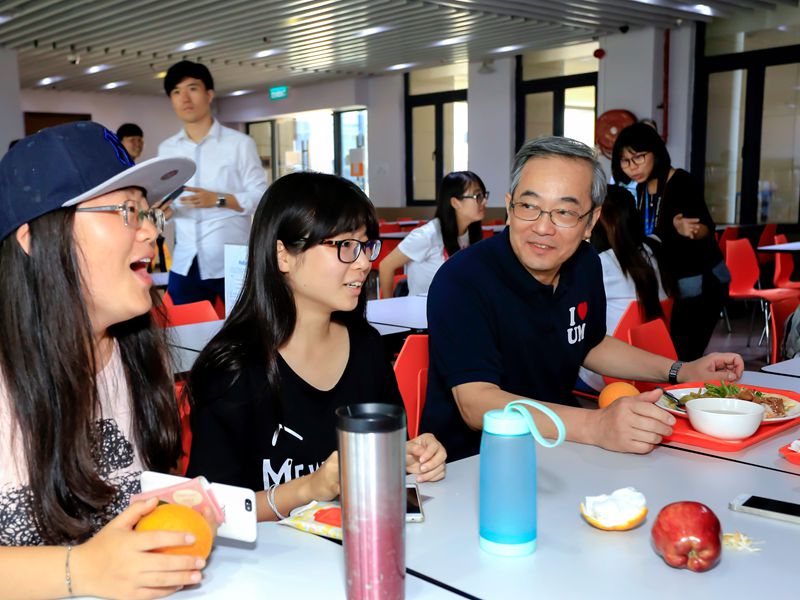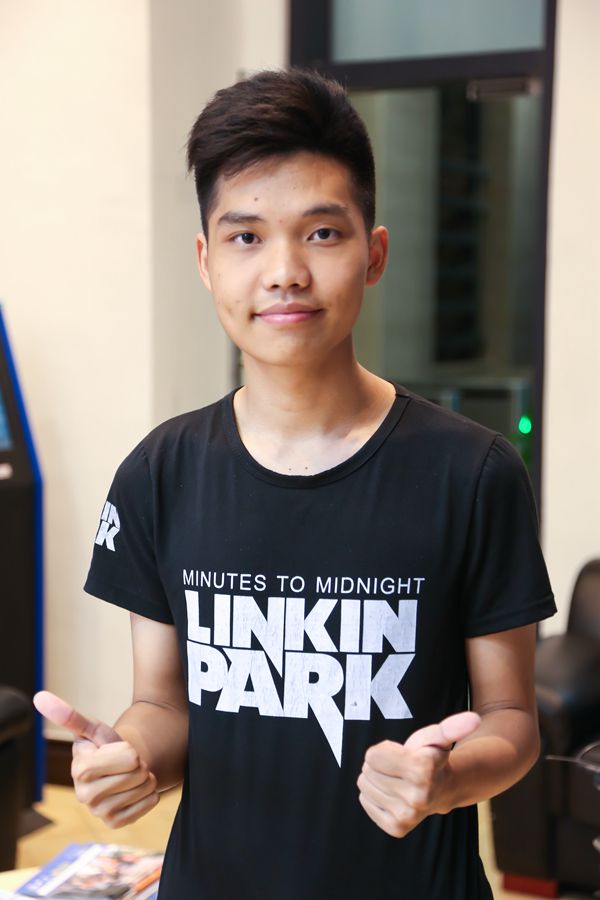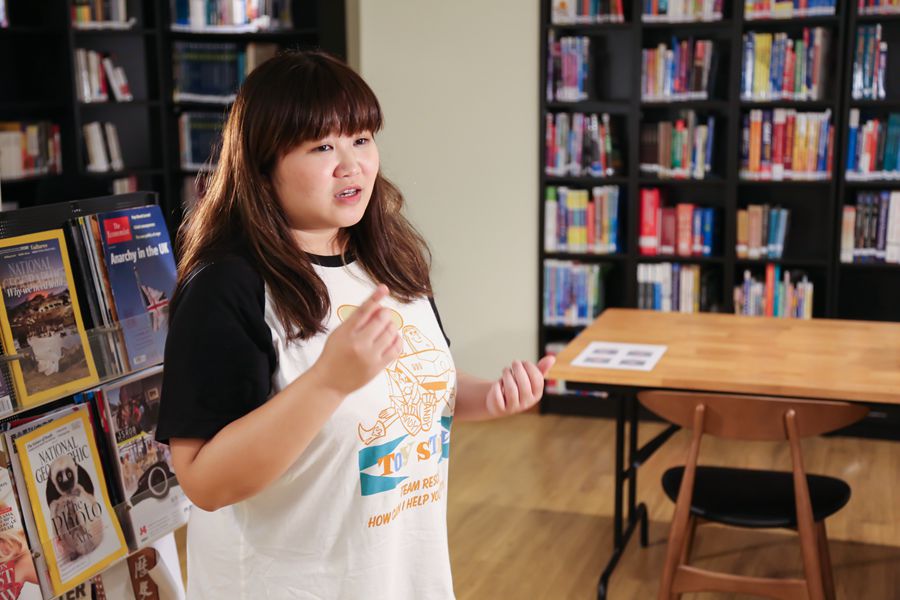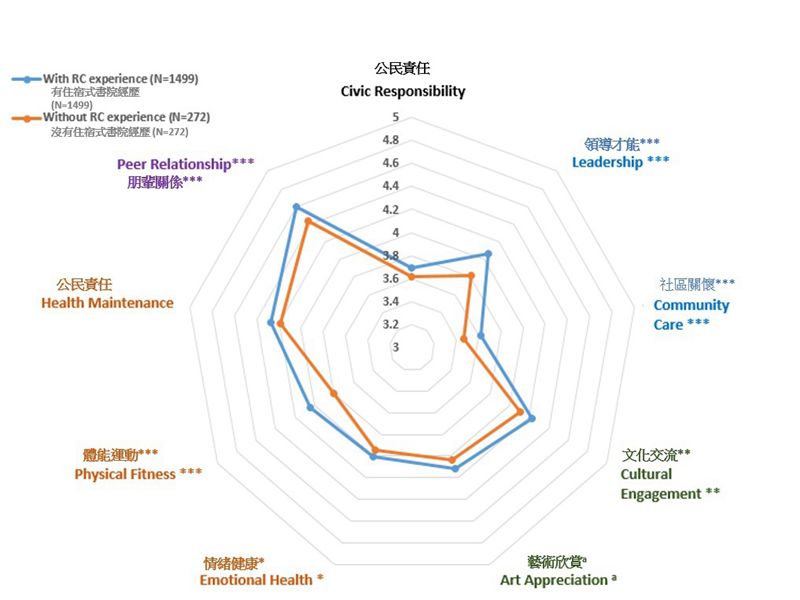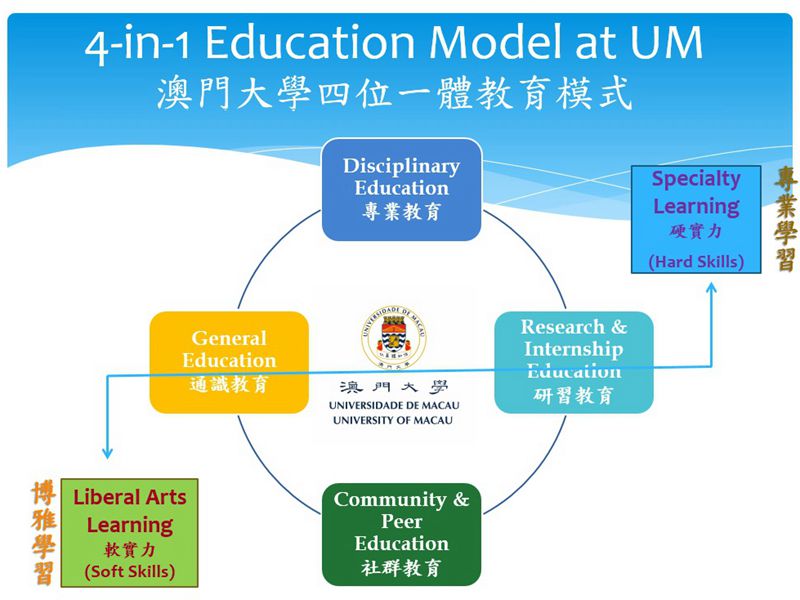Source: My UM
The University of Macau (UM) began to implement a complete system of residential colleges (RCs) in 2014. Over the past two years, the RC system has had a significant positive impact on the students, as evidenced by the results of a recent two-year performance survey that assessed, among other things, the various soft skills of the students.
Currently there are ten RCs at UM, and this year 4,400 new students moved into the RCs. In July, Prof Haydn Chen, vice rector for student affairs, shared UM’s experience in implementing the RC system at the Third Forum on Education of Modern Residential College organised by UM. He has also been invited to speak at the University of Hong Kong and Hong Kong Baptist University (HKBU) in Hong Kong; Vanderbilt University, Wheaton College, and Boston College in the United States; as well as universities in mainland China. ‘UM’s unique RC system has already attracted local and international attention. It is one of the things that sets UM apart in undergraduate education,’ says Prof Chen. ‘It places emphasis on developing soft skills outside the classroom, and creates an environment that is conducive to the student’s development, both academically and personally.’
Prof Chen believes the two-year performance assessment could not have come at a better time, because at the end of the two-year period, half of the undergraduate students (first-year and second-year students) were RC members while the rest were non-RC members. Two survey forms, designed by UM and HKBU respectively, were used to assess the learning outcomes of students with RC experiences and those with no RC experiences. Results of the survey showed the impact of the RC system on the students in five competency areas, namely Healthy Living, Interpersonal Relation and Teamwork, Leadership and Service, Cultural Engagement, and Citizenship with Global Perspectives and Patriotism.
Our assessment is done on a continuous basis. It is not of a competitive nature; its purpose is to evaluate the learning outcomes of our students,’ says Prof Chen. ‘The results of the survey showed that students with RC experiences scored higher in the five competency areas than those with no RC experiences.’ Statistics also show that students with RC experiences made greater progress in studies and spend less time on part-time jobs and more time on extracurricular activities. The improved team spirit as a result of the students’ active participation in these activities in turn resulted in more sports awards over the past two years. ‘It’s only been two years since we implemented the RC system, and I’m really pleased with the encouraging results,’ says Prof Chen.
‘RCs are not just a place where you sleep; it’s also a place for peer interaction.’
Fan Yin is a second-year student from the Faculty of Business Administration. He is also a member of Lui Che Woo College. Before joining UM, he thought the RC would just be a place where he rests and sleeps. ‘Turns out I was completely wrong,’ he says. ‘It is much more than a place where you sleep. It’s also a place where you make new friends, cultivate healthy habits, and expand your network. It provides an excellent platform to develop both personally and academically. So we should make good use of it.’
Like many local students, Fan was very keen on part-time jobs in the first semester. But in the second semester, as he grew more and more interested in the various activities organised by his RC, he reduced his weekly part-time hours from 12 to 6. This year, he became the president of the College House Association. With this new role, he stopped part-time jobs completely, and focused instead on studies and activities organised as part of community and peer education, one of the components of the ‘4-in-1’ education model. ‘In the second semester of the first year, my academic performance improved. I think it was because I spent less time on part-time jobs and worked harder under the good influence of other RC members,’ he says. ‘What I’ve learned from the last year is that time spent on part-time jobs would be better spent participating in extracurricular activities, because you can meet more people and gain more.’
‘Their guidance has saved me many detours.’
Two years ago, Tam Yu Yan from Hong Kong Polytechnic University transferred to UM’s Department of Psychology, and became a member of the Henry Fok Pearl Jubilee College. She chose UM because she believes UM provides more resources to the students. ‘It’s crazy! I never thought there would be so many extracurricular activities at UM. For me, at least three nights a week are spent attending the workshops organised by our college,’ she says. In the second year, Tam became an event organiser and a floor assistant. ‘As an event organiser, I often have to deal with different kinds of people, and in the process my communication skills have improved greatly. I used to be a quiet person and dreaded public speaking, but now I can talk comfortably with a complete stranger, and this newly acquired skill also helps my presentations in class.’ She also loves to attend lectures. Over the past two years, she has attended numerous cultural and arts lectures, which she says has greatly broadened her horizons.
UM requires all faculty members to spend a minimum of one hour every week per semester with the students. Currently, 300 faculty members from the various departments live in the RCs to help students with problems they encounter in studies or everyday life. Tam is grateful to the faculty members in the RC f or their guidance. ‘Whether it’s a problem I have in studies or everyday life, I can always turn to the teachers for advice. Their guidance has saved me many detours.’

